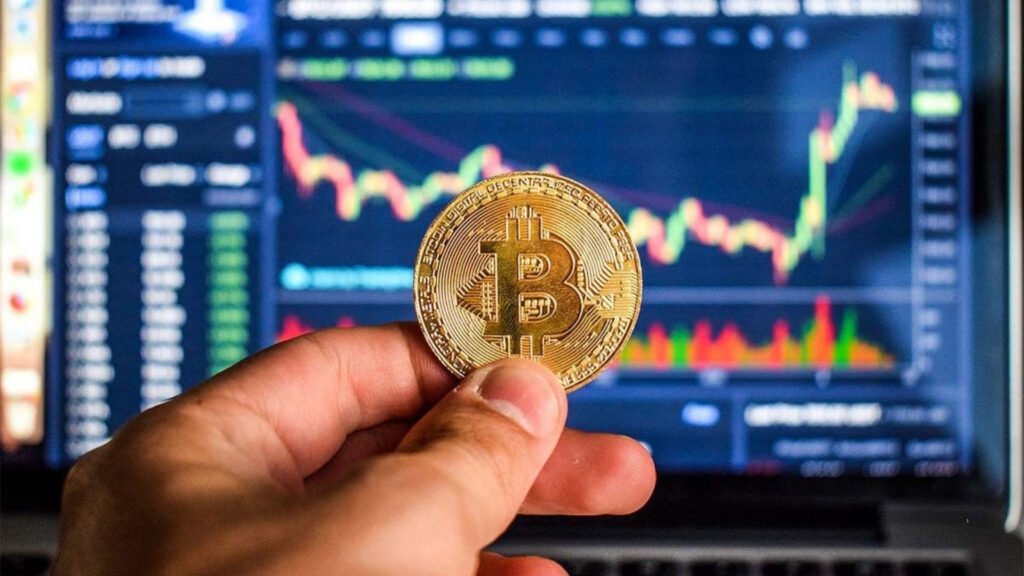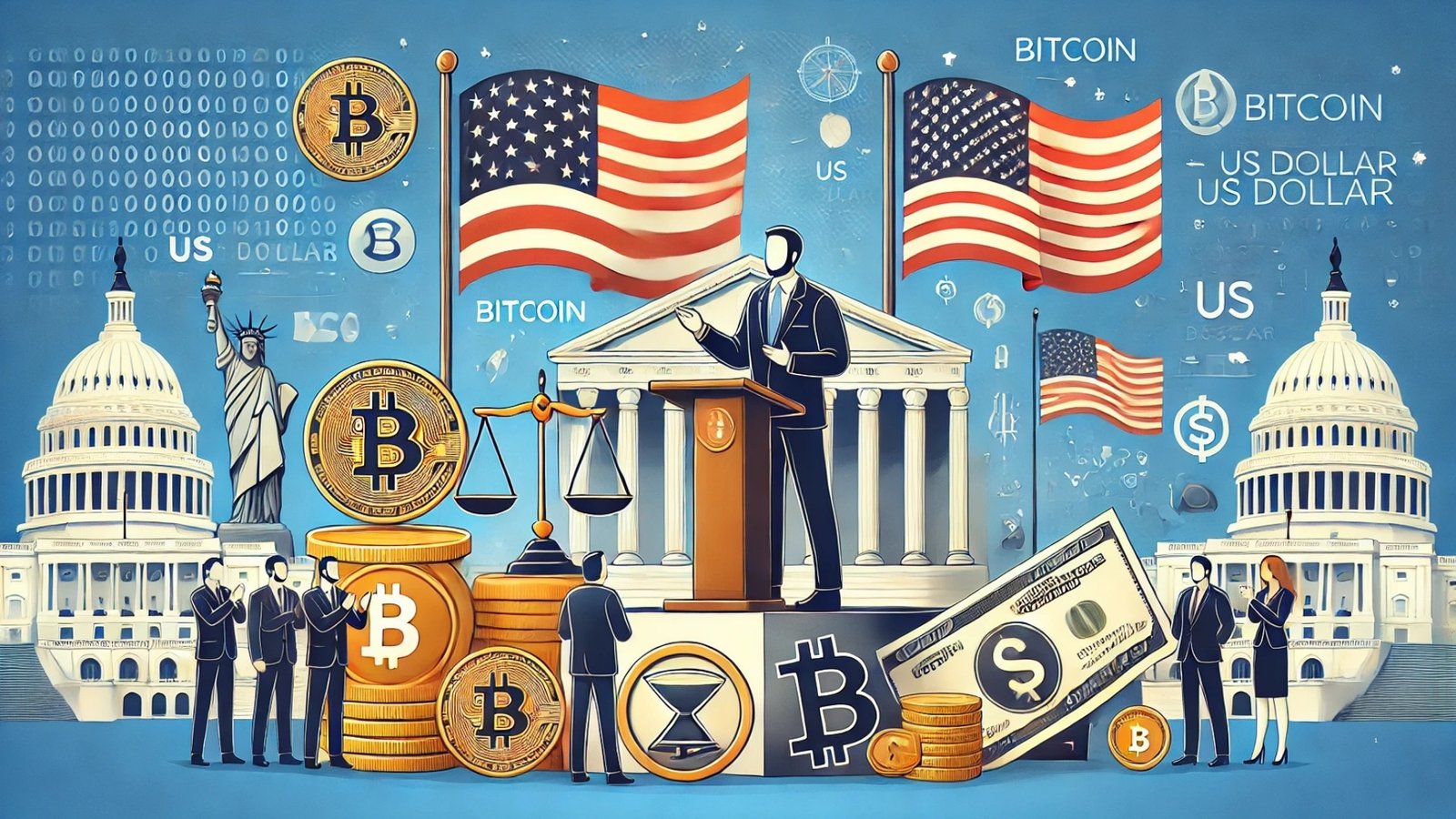Trump’s Crypto Revolution is reshaping the global financial landscape. The UK should consider establishing a Bitcoin Reserve in response to this transformative shift. Cryptocurrencies are changing the international economic environment. Bitcoin has led the way as digital currencies have become widespread in recent years. The largest cryptocurrency is gaining value as investors, governments, and financial institutions pay notice. Former President Donald Trump, a divisive personality, has recently supported cryptocurrencies, notably Bitcoin. His support for digital assets has raised concerns about their influence on global financial institutions, especially UK monetary policy.
Bitcoin Revolutionizes Finance
Bitcoin was invented in 2009 by Satoshi Nakamoto as an experimental digital asset. Blockchain technology enabled safe, decentralized transactions without banks, offering an alternative to traditional currencies. Bitcoin is currently worth over $1 trillion after growing dramatically. It is appealing since it’s decentralized. Bitcoin is uncontrolled and inflation-free, unlike central bank currencies. Many investors choose it as a store of value since its 21 million coins cannot be diluted.
With Bitcoin’s growing popularity, many countries are starting to consider its potential role in their financial systems. The UK, one of the world’s largest economies, has seen increasing interest in Bitcoin and other cryptocurrencies. Still, the country has yet to fully embrace the digital asset in its national reserves.
UK Finance and Bitcoin
With the Bank of England supervising monetary policy, the UK has long been a worldwide financial powerhouse. UK financial institutions are intimately linked to the global economy, and the British pound is one of the most traded currencies. Despite its economic strength, the UK has been wary about accepting cryptocurrencies. The Financial Conduct Authority (FCA) and anti-money laundering procedures have helped regulate the crypto sector, but Bitcoin and other cryptocurrencies have not been included in the nation’s official reserves.
This caution may be related to cryptocurrency volatility. Bitcoin’s price swings make it dangerous to own in significant quantities. Many governments throughout the globe regulate and tax cryptocurrencies differently, making the regulatory landscape unstable. Some analysts advise the UK to reassess its position as Bitcoin’s value and awareness expand. They claim that adding Bitcoin to the country’s financial reserves might boost financial stability, defend against inflation, and allow it to participate in the global cryptocurrency economy.
Crypto Revolution’s Trump
The UK has been reluctant to adopt Bitcoin, although the previous President Donald Trump has actively promoted it. Trump, known for his unconventional politics and economics, has long slammed banks and lauded Bitcoin’s decentralization. Trump has frequently warned Bitcoin might topple the global financial system. Many expect the U.S. to accept cryptocurrencies due to his support for Bitcoin. Trump’s crypto revolution may impact the UK. The UK may adopt bitcoin like the U.S. to compete globally.
Reasons for a UK Bitcoin Reserve
There is some debate about the notion of adding Bitcoin to national reserves. Gold and foreign currencies, such as the US dollar, have historically been essential to central banks’ reserves. However, many analysts think that as Bitcoin continues to gain traction, it may become a helpful asset that central banks might own. There are several compelling reasons why the UK should consider a Bitcoin reserve:

Hedge Against Inflation: Bitcoin’s inflation protection is asignificantr benefit. The Bank of England and other central banks have produced massive quantities of money during economic crises, raising inflation fears. Bitcoin is an attractive store of value because its 21 million coins are inflation-proof.
Diversification of Reserves: Financial diversity is essential, and adding Bitcoin to the UK’s reserves might help. Gold and foreign currencies are volatile, but Bitcoin’s rising use and value make it a potentially attractive asset for the UK.
Global Economic Strategy: As worldwide interest in Bitcoin rises, the UK’s early adoption of Bitcoin reserves might position it as a digital economy leader. Countries integrating cryptocurrencies into their financial systems may attract investment and stimulate financial innovation.
Promoting Financial Innovation: Bitcoin in the UK’s financial reserves might boost fintech innovation. Digital assets might lure blockchain and cryptocurrency firms, developers, and entrepreneurs to the UK, strengthening its standing as a worldwide fintech powerhouse.
Challenges and Considerations
UK national reserves contain Bitcoin, which worries. Bitcoin’s volatility can be harmful. Market and price volatility may damage asset-owning central banks. The rules must change. As governments globally regulate cryptocurrencies, taxes, consumer protection, and anti-money laundering rules are unsettled and may change swiftly in the UK. Bitcoin also has a reputation problem. Many dispute its long-term usefulness and stability, despite its popularity. This uncertainty may impact the UK and global public and partner views of Bitcoin in national reserves.
In Summary
The UK is pressured to add Bitcoin to its reserves as the cryptocurrency revolution accelerates. Due to Trump’s support for digital currencies and Bitcoin’s increasing impact on global financial markets, the UK may soon decide on digital assets. A Bitcoin Reserve led by Trump’s Crypto Revolution might improve the UK’s economic standing in the digital age. Bitcoin in UK reserves may hedge inflation, diversify assets, and position it strategically in the global economy. Regulation, volatility, and public opinion must be considered. The UK’s response to the Bitcoin revolution will influence its economy as finance evolves. The UK may lead the digital economy by adopting innovation and change.









